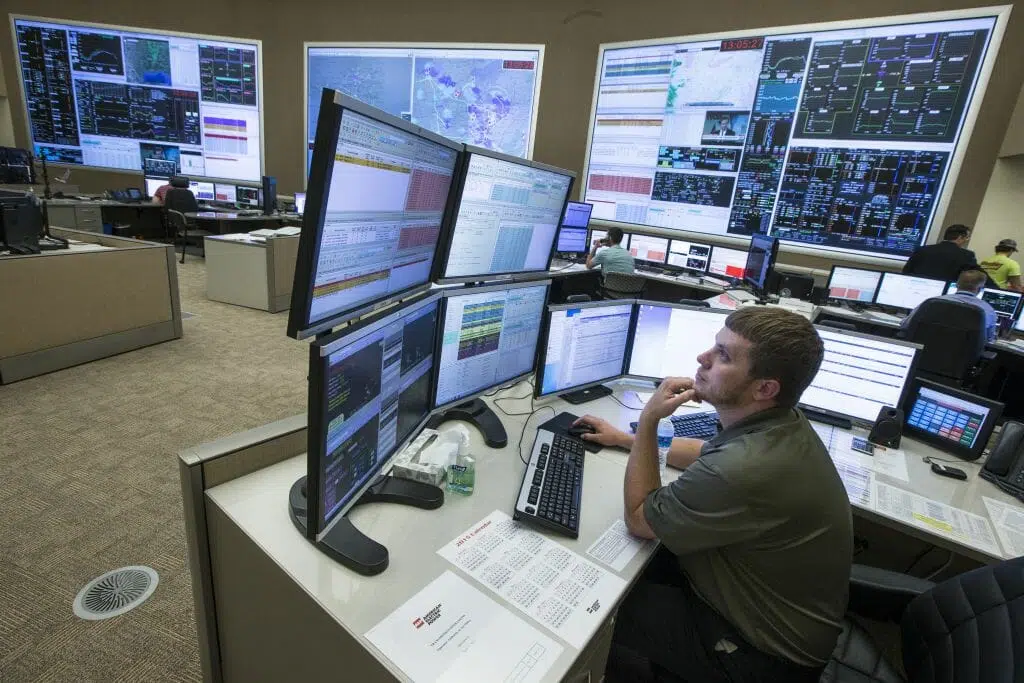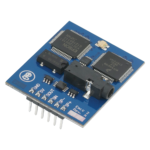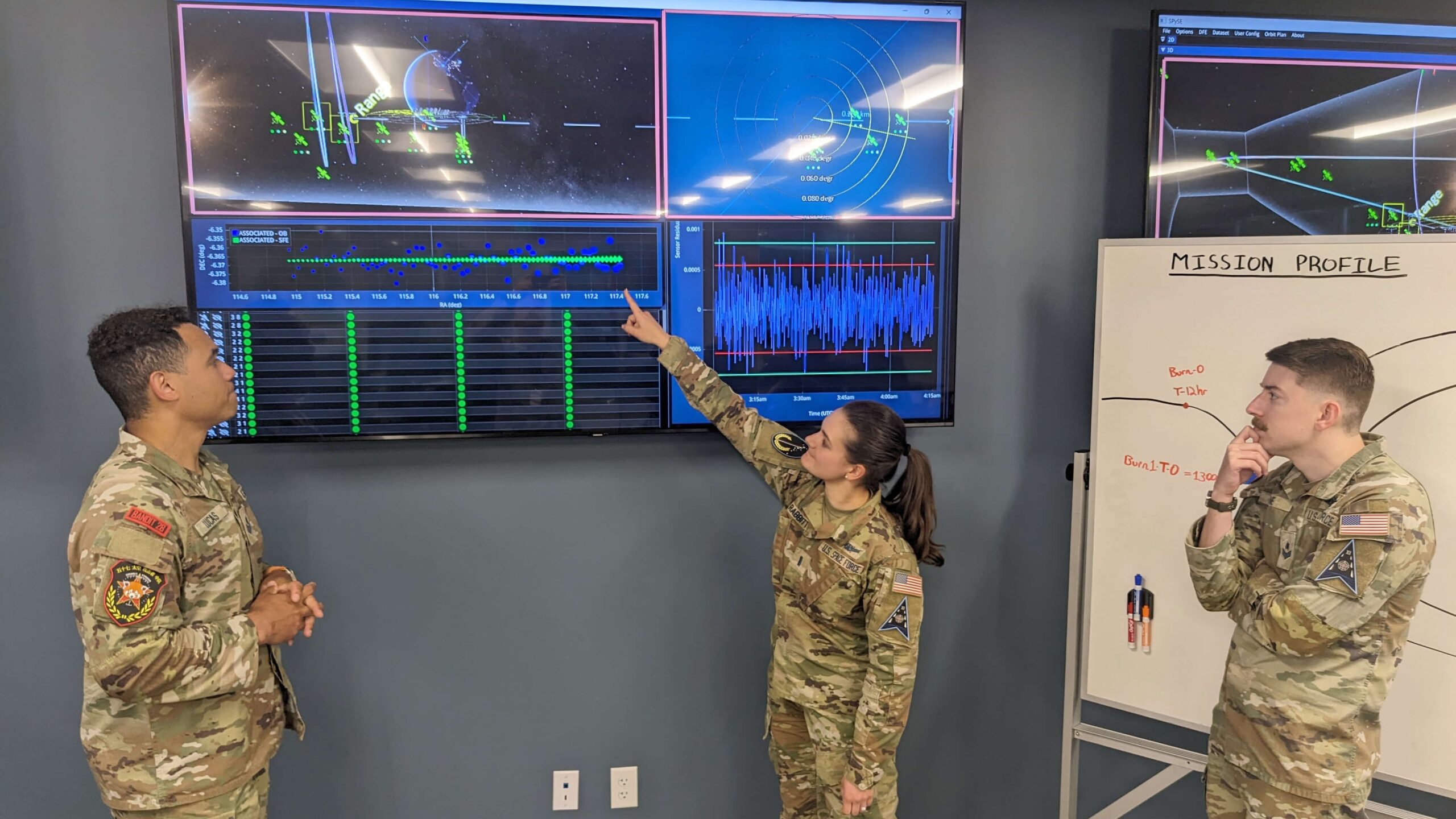Finding a job in any field can be daunting, but looking for power system operator jobs in the US comes with its own unique challenges. Between understanding the qualifications and certifications required, to knowing which companies are hiring and where to find job listings, it can feel overwhelming. But don’t worry, I’ve got you covered.
As someone who has been studying and researching this topic for years, I understand the ins and outs of the power system operator industry. And as a fellow job seeker, I know the struggle of trying to navigate through all the information out there. That’s why I’m here to share my expertise and help guide you on your journey to becoming a power system operator in the US.
In this article, we’ll discuss everything from what a power system operator does, their key responsibilities and skills needed for success in this role. We’ll also take a look at different industries that employ power system operators and explore tips for finding open positions and acing your interviews. So if you’re ready to kickstart your career as a power system operator in the US, let’s get started!
So, power system operator jobs?
There are many power system operator jobs available in the US. These jobs involve monitoring and controlling the flow of electricity through a power grid, ensuring that it is delivered safely and efficiently to homes and businesses.
To become a power system operator, you typically need a bachelor’s degree in electrical engineering or a related field. Some employers may also require previous experience in the energy industry or specific certifications.
In addition to technical knowledge, strong problem-solving skills and attention to detail are essential for this role. Power system operators must be able to quickly identify and resolve any issues that arise within the power grid.
It’s also important for potential candidates to have good communication skills as they will often need to work closely with other team members and communicate information effectively during emergencies or outages.
Overall, being a power system operator can be an exciting career path for those interested in working with complex systems and playing an important role in keeping our society running smoothly. So if you have the necessary qualifications and skills, don’t hesitate to explore job opportunities in this field!
Understanding the Role and Responsibilities of a Power System Operator
A power system operator plays a vital role in ensuring the smooth functioning of electrical grids, which are essential for our daily lives. These skilled professionals monitor and control the flow of electricity from various sources like power plants, solar panels, or wind turbines to homes and businesses. They work behind the scenes to maintain balance between supply and demand, making sure that everyone has access to the energy they need when they need it. Imagine them as traffic controllers for electricity; their decisions help prevent outages or overloads in the system by continuously analyzing data from different locations.
In addition to monitoring systems, operators respond swiftly to emergencies that may disrupt service. They must communicate effectively with teams of engineers and technicians while using advanced computer systems designed for real-time analysis. Their responsibilities include:
- Coordinating maintenance schedules
- Troubleshooting issues
- Ensuring compliance with safety regulations
Moreover, operators stay updated on changes in technology and industry trends to manage evolving energy demands efficiently. As renewable energy sources become more common, these operators adapt their strategies to incorporate sustainable practices into traditional grid management—making their role increasingly significant in our quest for a greener future.
Required Skills and Qualifications for Power System Operator Jobs
To become a power system operator, several essential skills and qualifications are necessary for success in this critical role. First and foremost, a solid foundation in electrical engineering or a related field is often required. This educational background equips candidates with the knowledge needed to understand complex systems and troubleshoot issues that may arise. Furthermore, operators must possess strong analytical skills, enabling them to assess data quickly and make informed decisions under pressure. Key technical skills might include familiarity with monitoring software, SCADA systems (Supervisory Control and Data Acquisition), as well as an understanding of power generation processes.
In addition to technical expertise, effective communication plays a vital role in the daily responsibilities of a power system operator. Operators frequently collaborate with other team members or departments to ensure smooth operations across the grid. They must convey information clearly while also being receptive to feedback or instructions from supervisors. Strong problem-solving abilities are equally crucial; when unexpected challenges occur—like outages or equipment failures—a calm demeanor along with quick thinking becomes invaluable. In summary, blending education with both hard and soft skill sets creates well-rounded professionals capable of managing today’s dynamic energy landscape effectively.
Essential Qualifications:
- Bachelor’s degree in electrical engineering
- Experience in control room environments
- CERTIFICATION (NERC) may be required

Read also: best operating system for nas
The Job Search: Where to Find Power System Operator Jobs in the US
Navigating the job market for a power system operator can feel like exploring a vast maze, but with the right resources, you can find your way to exciting opportunities. Start by checking specialized job boards that focus on energy and utilities. Websites like Energy Jobline or PowerGridJobs are treasure troves filled with listings specifically tailored for this field. Networking is another powerful tool; consider joining industry groups on LinkedIn or attending local energy conferences. Here, you might meet seasoned professionals who could lead you to hidden gems in the job world.
Don’t overlook utility companies’ own career pages! Many positions are posted directly on their websites before reaching larger platforms. It’s also wise to keep an eye out for internships or apprenticeships—it’s a fantastic way to get your foot in the door and gain experience while making valuable connections in the field. Local trade schools often have ties with these companies, so explore those options as well.
Moreover, state and federal agencies sometimes offer openings related to power systems—these jobs may be less advertised but equally rewarding! By combining online searches with networking efforts and tapping into educational resources, you’ll place yourself at an advantage when seeking that coveted role as a power system operator in America.
Preparing for Interviews: Common Questions and How to Answer Them for Power System Operators
When preparing for interviews as a Power System Operator, it’s crucial to understand the types of questions you might face. Interviewers often focus on assessing both your technical knowledge and problem-solving abilities. Expect inquiries such as, “Can you describe a time when you had to troubleshoot an unexpected outage?” This question aims to gauge your critical thinking and ability to remain calm under pressure. To answer effectively, use the STAR method: describe the Situation, explain the Task, detail the Action you took, and share the Result. This structured response not only showcases your experience but also highlights how well you handle challenges.
In addition to situational questions, be prepared for technical queries related to power systems. You might encounter something like, “What are some common causes of generator failure?” Here’s where your expertise shines. Discuss various factors such as mechanical wear or electrical issues while emphasizing preventive measures you’ve implemented in past roles. It’s also helpful to express enthusiasm about ongoing learning in this evolving field; mention any relevant certifications or training you’ve undertaken recently. Remember that displaying confidence paired with humility will make a lasting impression on interviewers looking for capable operators who thrive in dynamic environments.
You may also like: asr ai
Career Growth Opportunities in the Field of Power Systems Operations
In the ever-evolving world of power systems operations, career growth opportunities are as bright as a newly installed solar panel. With the increasing demand for energy efficiency and renewable sources, professionals in this field can explore diverse paths. For instance, engineers may specialize in smart grid technologies that enhance electricity distribution by utilizing advanced monitoring and control systems. Project management roles are another avenue where individuals can oversee large-scale projects aimed at upgrading existing infrastructure or implementing sustainable practices.
Moreover, there are abundant chances to dive into research and development. This aspect allows passionate minds to investigate cutting-edge technologies such as battery storage solutions or innovative wind turbine designs.
Additionally, certifications in areas like energy management can significantly broaden one’s expertise and appeal to employers. Networking with industry professionals through conferences and workshops also opens doors to mentorships that provide invaluable insights.
- Field technician
- Energy analyst
- Sustainability consultant
This variety enables anyone aiming for success in power systems operations not just to grow but to thrive while making a positive impact on our planet’s future energy landscape. The possibilities truly feel endless!
Read also: space systems operations civilian jobs
Read also: Online Speech Recognition



